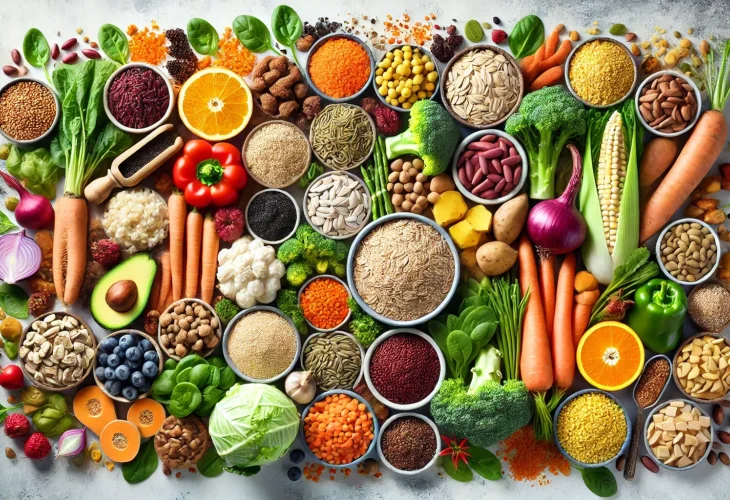Debunking Diet Myths: What You Really Need to Know
Healthy eating is a hot topic, but the vast information online can lead to common misconceptions. Let's set the record straight on some popular diet myths.

In today's world, where information is just a click away, the realm of healthy eating is riddled with myths and misconceptions. Often, we find ourselves confronted with conflicting advice about what's truly beneficial for us. Here are some of the most common healthy eating myths debunked.
1. All Fats Are Bad for You
Myth: Fat is the biggest enemy of anyone trying to maintain a healthy diet and lose weight.
Truth: Fats are an essential component of a diet, but it's crucial to differentiate between types of fats. While saturated and trans fats can be harmful to heart health, unsaturated fats, like those found in olive oil, nuts, and fish, support heart and vascular health and help absorb essential vitamins.
2. All Calories Are Created Equal
Myth: Every calorie consumed affects the body in the same way, regardless of its source.
Truth: The quality of calories is as important as the quantity. Calories from fiber-rich foods, proteins, and healthy fats impact the body differently than calories from processed foods rich in sugars and saturated fats. Whole foods give a longer-lasting feeling of fullness and improve metabolic processes.
3. Low-Carb Diets Are the Best Way to Lose Weight
Myth: To lose weight, you must almost completely avoid carbohydrates.
Truth: Low-carb diets, like the ketogenic diet, may be effective for some, but they aren't suitable for everyone. Some may find it hard to stick to these diets long-term and may experience side effects and nutritional deficiencies. Complex carbohydrates such as whole grains, legumes, and vegetables provide the body with important energy and can be part of a balanced, healthy diet. The focus should be on the quality of carbs, not just the quantity.
4. Organic Food Is Always Healthier
Myth: Every organic product is necessarily healthier.
Truth: Organic food might contain fewer pesticides, but that doesn't mean it's necessarily more nutritious. It's important to compare the nutritional values of organic food to its non-organic counterparts to determine if it's indeed healthier. Also, not every product labeled as organic is necessarily whole or nutritious.
5. Artificial Sweeteners Are a Healthy Sugar Substitute
Myth: Artificial sweeteners are a simple and healthy way to reduce sugar intake.
Truth: Studies have shown that artificial sweeteners can influence hunger and metabolism, and some sweeteners might even increase the risk of developing metabolic diseases. It's wise to be cautious when using artificial sweeteners and not view them as a magic solution.
6. You Must Completely Avoid Gluten to Be Healthy
Myth: Gluten is harmful to everyone, so it should be completely avoided.
Truth: For most people, gluten is not harmful. Only those with celiac disease or gluten sensitivity need to avoid it. Foods containing gluten, like whole wheat, can be part of a healthy, balanced diet.
7. Brown Sugar Is Healthier Than White Sugar
Myth: Brown sugar contains more vitamins and minerals and is therefore healthier.
Truth: While brown sugar contains slightly more minerals than white sugar, the difference is nutritionally insignificant. Both brown and white sugar are sources of simple sugar, and consumption should be moderated to maintain health.

